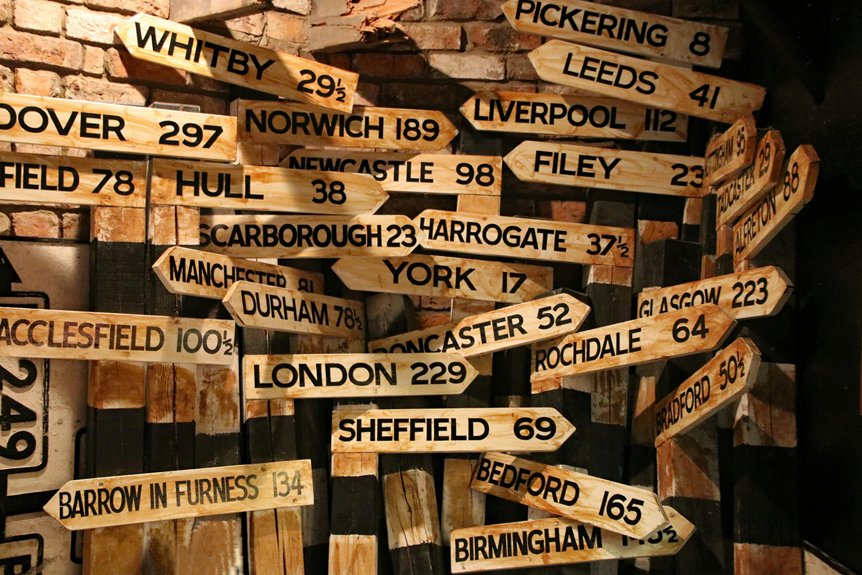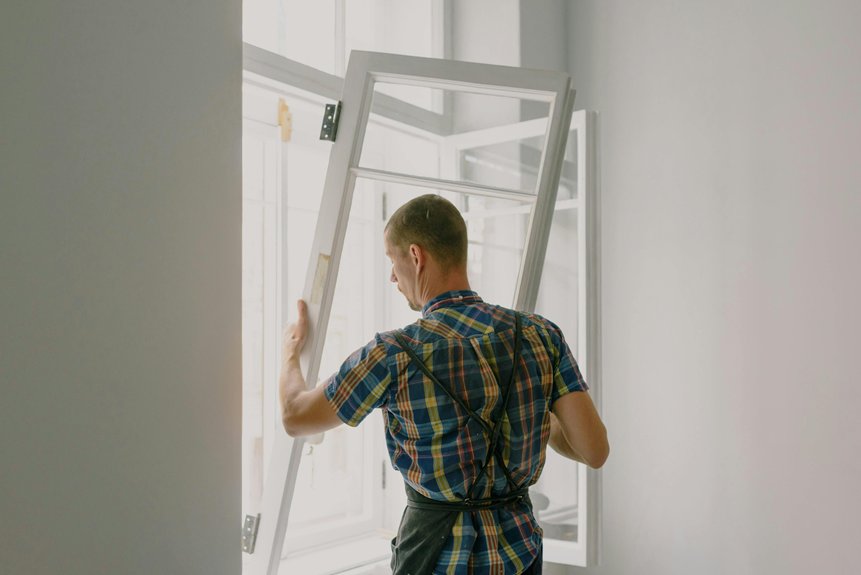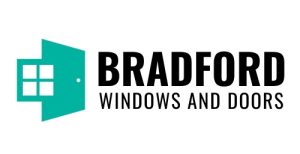When choosing the right installer, ask about their experience and qualifications to guarantee they meet your project’s needs. Verify their licensing and insurance, and request references to gauge client satisfaction. It’s also vital to understand their pricing structure and payment terms. Inquire about their communication style, crisis management, and the timeline for completion. Knowing these details upfront helps you avoid surprises. Stick with us to uncover more essential questions you should consider asking.
Key Takeaways
- Verify the installer’s qualifications, licenses, and industry certifications to ensure they meet regulatory standards and possess necessary skills.
- Request references and testimonials from past clients to gauge the installer’s reliability and craftsmanship.
- Seek a detailed breakdown of pricing, including materials and labor, to avoid unexpected costs during the project.
- Discuss the installer’s communication style and how they will provide project updates and handle changes or issues.
- Establish response time expectations for inquiries to ensure timely communication and effective project management.
What Is Your Experience and Background?
When choosing an installer, how can you be certain they’ve the right experience and background? Start by asking about their installer qualifications.
Look for professionals with extensive hands-on experience in your specific project type. Industry certifications are also essential; they demonstrate that the installer has met recognized standards and keeps up with the latest technologies and techniques.
Inquire about their past projects and request references to gauge their expertise. A qualified installer should be enthusiastic to share their portfolio and discuss their approach. Additionally, consider their familiarity with high thermal and safety standards to ensure they can meet your specific needs.
This transparency not only builds trust but also helps you assess if they’re the right fit for your needs. Make certain to prioritize these factors to guarantee a successful installation experience.
Are You Licensed and Insured?
How can you guarantee peace of mind throughout your installation project? Start by asking if your installer is licensed and insured.
These installer qualifications are vital because they demonstrate a commitment to professionalism and adhere to industry standards. A licensed installer has undergone the necessary training and has the credentials to back it up, ensuring quality workmanship.
Insurance coverage is equally important. It protects you from potential liabilities, such as property damage or accidents that may occur during the installation process.
If something goes wrong, you’ll want to know that the installer has the financial backing to cover any mishaps. Additionally, ensure that your installer is familiar with CERTASS compliance, as this indicates adherence to necessary regulations and standards in the industry. So, never hesitate to verify these credentials—it’s a significant step in securing a successful, stress-free installation experience.
Can You Provide References or Testimonials?
Verifying an installer’s license and insurance sets a solid foundation, but it’s equally important to assess their track record.
Ask for references or testimonials from previous clients; this will give you insight into their client success and overall reliability. A reputable installer should be happy to share project feedback, showcasing their ability to meet deadlines and deliver quality work.
Pay attention to recurring themes in the feedback—whether it’s about craftsmanship, communication, or post-installation support. Don’t hesitate to contact past clients directly to gather their firsthand experiences.
This due diligence not only helps you gauge the installer’s capabilities but also guarantees you’re making an informed decision for your project. Ultimately, trust is built on proven results. Additionally, consider the importance of customer service reputation, as it can significantly impact your overall experience with the installer.
What Is Your Pricing Structure?
Understanding the pricing structure of an installer is essential for managing your budget effectively. When discussing costs, prioritize pricing transparency.
Ask the installer for a detailed cost breakdown that outlines materials, labor, and any additional fees. This clarity not only helps you understand what you’re paying for but also allows you to compare different installers accurately.
Inquire whether they offer fixed pricing or if costs can fluctuate based on project changes. Knowing this will help you avoid unexpected expenses.
Additionally, don’t hesitate to ask about payment terms and any deposit requirements. Being informed about their pricing structure guarantees you’re making a sound investment and sets the stage for a successful installation experience.
What Is the Timeline for Completion?
Once you’ve clarified the pricing structure, it’s important to discuss the timeline for completion.
Understanding the project duration helps you set expectations and plan accordingly. Ask your installer about specific completion milestones to guarantee the project stays on track.
Consider these key points:
- Initial Assessment: When will the project start?
- Progress Updates: How often will you receive updates?
- Milestone Dates: What’re the key dates for different phases?
- Potential Delays: What factors could impact completion?
What Types of Materials Do You Recommend?
Choosing the right materials can greatly impact the durability and aesthetics of your project, so it’s essential to discuss your options with your installer.
You should inquire about their recommendations for sustainable materials that not only enhance the look of your space but also contribute to environmental conservation.
Ask how these materials align with your installation preferences, whether you prioritize low maintenance, energy efficiency, or specific design aesthetics.
A knowledgeable installer will provide insights into the best products for your needs and explain the benefits of each option.
Don’t hesitate to explore alternative materials that may offer greater longevity and sustainability. Additionally, consider composite doors, which feature high energy efficiency and are crafted with exceptional attention to style and detail.
This conversation will guarantee that you make informed choices that suit both your style and values.
How Do You Handle Changes or Unexpected Issues?
When discussing materials, it’s also important to address how your installer manages changes or unexpected issues during the project.
Effective change management and swift issue resolution are essential for a smooth experience. You want to guarantee your installer has a clear process in place.
Here are some questions to take into account:
- How do you communicate changes to the client?
- What steps do you take to resolve issues?
- Can you provide examples of past challenges you’ve handled?
- How do you maintain transparency throughout the process?
Do You Offer Warranties or Guarantees?
Have you considered the importance of warranties or guarantees when selecting an installer? Understanding warranty details can save you money and stress down the line.
Ask potential installers about their warranty options—how long they last and what they cover. A solid warranty not only protects your investment but also reflects the installer’s confidence in their workmanship.
It’s essential to know if they offer a satisfaction guarantee or if they’ll handle repairs if issues arise. Don’t hesitate to request documentation that outlines their warranty details, ensuring you’re fully informed.
A trustworthy installer will stand behind their work, giving you peace of mind that you’re making a sound decision for your project. Choose wisely; it can make all the difference.
What Is Your Communication Style and Availability?
How do you prefer to communicate, and how accessible will your installer be throughout the project?
Understanding your installer’s communication style and availability expectations is essential for a smooth experience. You’ll want to guarantee that their approach aligns with your preferences to avoid any misunderstandings.
Consider asking these key questions:
- What’s your preferred method of communication (phone, email, text)?
- How often will you provide updates on the project’s progress?
- Are you available for on-site discussions or quick questions?
- What’s your typical response time for inquiries?
Conclusion
Choosing the right installer can make or break your project, so it’s crucial to ask the right questions. Remember, “an ounce of prevention is worth a pound of cure.” By thoroughly vetting potential installers, you’ll guarantee that your investment is protected and that the work meets your expectations. Take your time, communicate openly, and don’t hesitate to dig deeper. Ultimately, a little diligence now can save you a lot of headaches down the road.















